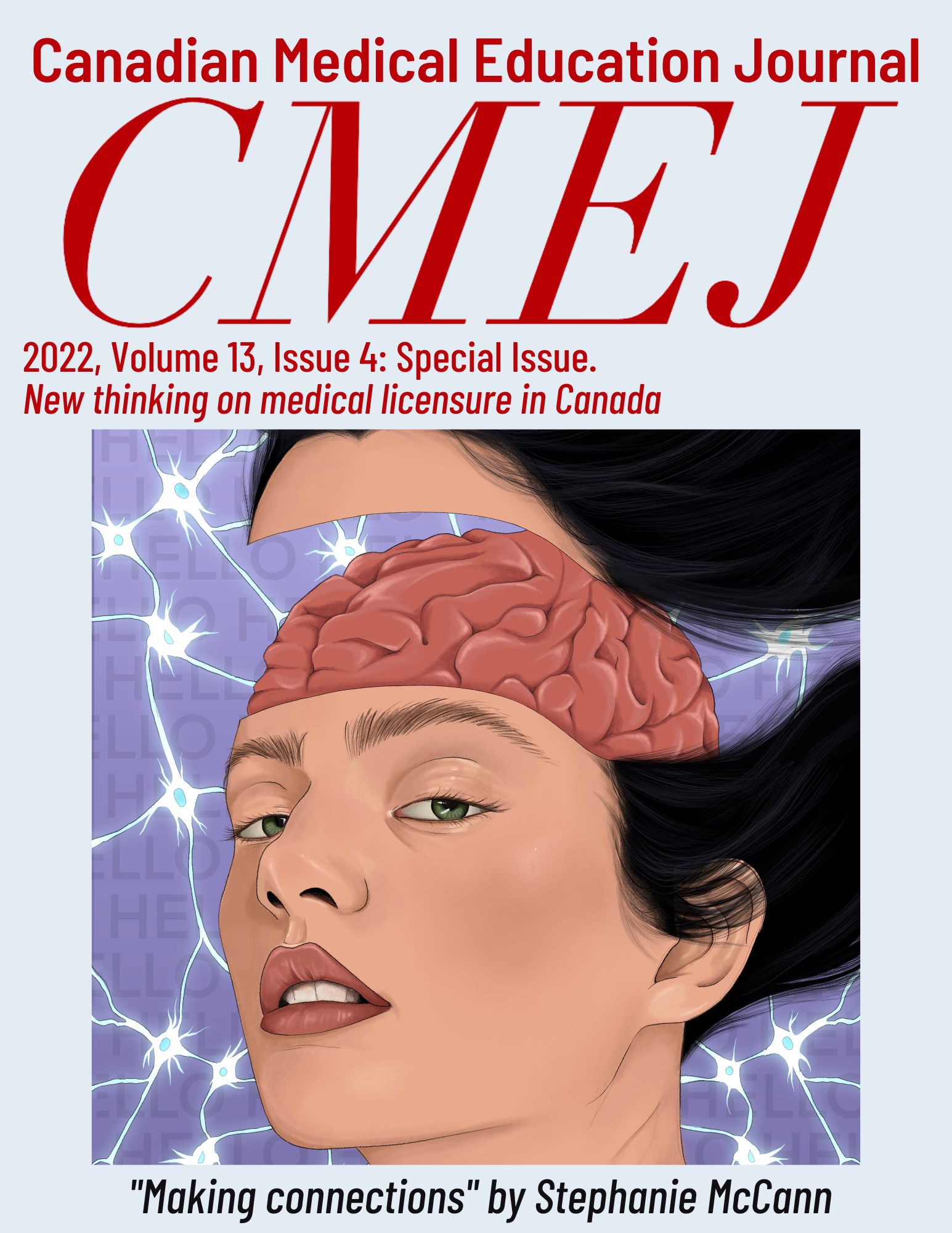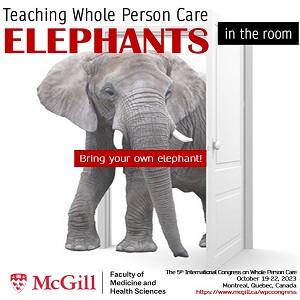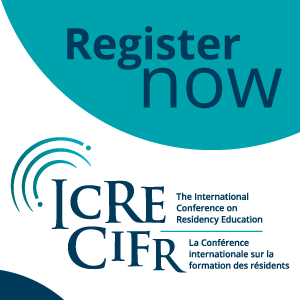Integrating training, practice, and reflection within a new model for Canadian medical licensure: a concept paper prepared for the Medical Council of Canada
DOI:
https://doi.org/10.36834/cmej.73717Abstract
In 2020 the Medical Council of Canada created a task force to make recommendations on the modernization of its practices for granting licensure to medical trainees. This task force solicited papers on this topic from subject matter experts. As outlined within this Concept Paper, our proposal would shift licensure away from the traditional focus on high-stakes summative exams in a way that integrates training, clinical practice, and reflection. Specifically, we propose a model of graduated licensure that would have three stages including: a trainee license for trainees that have demonstrated adequate medical knowledge to begin training as a closely supervised resident, a transition to practice license for trainees that have compiled a reflective educational portfolio demonstrating the clinical competence required to begin independent practice with limitations and support, and a fully independent license for unsupervised practice for attendings that have demonstrated competence through a reflective portfolio of clinical analytics. This proposal was reviewed by a diverse group of 30 trainees, practitioners, and administrators in medical education. Their feedback was analyzed and summarized to provide an overview of the likely reception that this proposal would receive from the medical education community.
Metrics
References
Chan T, Sebok-Syer S, Thoma B, Wise A, Sherbino J, Pusic M. learning analytics in medical education assessment: the past, the present, and the future. AEM Educ Train. 2018;2(2):178-87. https://doi.org/10.1002/aet2.10087
Thoma B, Caretta-Weyer H, Schumacher DJ, et al. Becoming a deliberately developmental organization: using competency-based assessment data for organizational development. Med Teach. 2021 May 25;43(7):801-9. https://doi.org/10.1080/0142159X.2021.1925100
Thoma B, Hall AK, Clark K, et al. Evaluation of a national competency-based assessment system in emergency medicine: a CanDREAM Study. J Grad Med Educ. 2020 Aug 1;12(4):425-34. https://doi.org/10.4300/JGME-D-19-00803.1
Blonde L, Khunti K, Harris SB, Meizinger C, Skolnik NS. Interpretation and impact of real-world clinical data for the practicing clinician. Adv Ther. 2018 Nov 1;35(11):1763-74. https://doi.org/10.1007/s12325-018-0805-y
Reznick RK, Blackmore D, Dauphinee WD, Rothman AI, Smee S. Large-scale high-stakes testing with an OSCE: report from the Medical Council of Canada. Acad Med. 1996 Jan;71(1):S19. https://doi.org/10.1097/00001888-199601000-00031
Thoma B, Monteiro S, Pardhan A, Waters H, Chan T. Replacing high-stakes summative examinations with graduated medical licensure in Canada. CMAJ. 2022 Feb 7;194(5):E168-70. https://doi.org/10.1503/cmaj.211816
Hafferty FW, O'Brien BC, Tilburt JC. Beyond high-stakes testing: learner trust, educational commodification, and the loss of medical school professionalism. Acad Med J Assoc Am Med Coll. 2020 Jun;95(6):833-7. https://doi.org/10.1097/ACM.0000000000003193
Physician Practice Improvement [Internet]. College of Physicians & Surgeons of Alberta. [cited 2021 Oct 1]. Available from: https://cpsa.ca/physicians-competence/ppip/
Royal College of Physicians and Surgeons. Essential Guidance for Quality Improvement. 2021 Available from: https://www.royalcollege.ca/rcsite/cpd/essential-guidance-for-quality-improvement-e?utm_source=ceo-message&utm_campaign=acpd [Accessed Oct 1, 2021].
Ivers N, Jamtvedt G, Flottorp S, et al. Audit and feedback: effects on professional practice and healthcare outcomes. Cochrane effective practice and organisation of care group, editor. Cochrane Database Syst Rev [Internet]. 2012 Jun 13 https://doi.org/10.1002/14651858.CD000259.pub3
Cooke LJ, Duncan D, Rivera L, Dowling SK, Symonds C, Armson H. How do physicians behave when they participate in audit and feedback activities in a group with their peers? Implement Sci. 2018 Dec;13(1):104. https://doi.org/10.1186/s13012-018-0796-8
Kamhawy R, Chan TM, Mondoux S. Enabling positive practice improvement through data-driven feedback: A model for understanding how data and self-perception lead to practice change. J Eval Clin Pract. https://doi.org/10.22541/au.159318396.69126591
Cooke LJ, Duncan D, Rivera L, Dowling SK, Symonds C, Armson H. The Calgary Audit and Feedback Framework: a practical, evidence-informed approach for the design and implementation of socially constructed learning interventions using audit and group feedback. Implement Sci. 2018 Dec;13(1):136. https://doi.org/10.1186/s13012-018-0829-3
Campbell C, Sisler J. Supporting Learning and Continuous Practice Improvement for Physicians in Canada: a new way forward. The Future of Medical Education in Canada: Continuing Professional Development; 2019 Available from: https://www.cpdcoalition.ca/wp-content/uploads/2021/01/FMEC-CPD_Synthesized_EN_WEB.pdf [Accessed Sept 22, 2021].
Tannenbaum D, Konkin J, Parsons E, , et al. Triple C competency-based curriculum. Report of the Working Group on Postgraduate Curriculum Review - Part 1. College of Family Physicians of Canada; 2011;p. 1-101. Available from: https://www.cfpc.ca/CFPC/media/Resources/Education/WGCR_TripleC_Report_English_Final_18Mar11.pdf [Accessed on Sept 22, 2021].
Oandasan I, Saucier D. Triple C Competency Based Curriculum Report - Part 2 Advancing Implementation. The College of Family Physicians of Canada; 2013 p. 1-170. Available from: https://www.cfpc.ca/CFPC/media/Resources/Education/TripleC_Report_pt2.pdf
Karpinski J, Frank JR. The Role of EPAs in creating a national system of time-variable competency-based medical education. Acad Med. 2021 Jul 1;96(7S):S36-41. https://doi.org/10.1097/ACM.0000000000004087
Lockyer J, Armson H, Könings KD, et al. In-the-moment feedback and coaching: improving R2C2 for a new context. J Grad Med Educ. 2020 Feb 1;12(1):27-35. https://doi.org/10.4300/JGME-D-19-00508.1
Clow D. An overview of learning analytics. Teach High Educ. 2013;18(6):683-95. https://doi.org/10.1080/13562517.2013.827653
Carey R, Wilson G, Bandi V, et al. Developing a dashboard to meet the needs of residents in a competency-based training program: a design-based research project. Can Med Educ J. 2020;11(6):e31-5. https://doi.org/10.36834/cmej.69682
Thoma B, Bandi V, Carey R, et al. Developing a dashboard to meet Competence Committee needs: a design-based research project. Can Med Educ J. 2020;11(1):e16-34. https://doi.org/10.36834/cmej.68903
Yilmaz Y, Carey R, Chan T, et al. Developing a dashboard for faculty development in competency-based training programs: a design-based research project. Can Med Educ J. 2021;12(4):48-64. https://doi.org/10.36834/cmej.72067
Yilmaz Y, Carey R, Chan TM, et al. Developing a dashboard for program evaluation in competency-based training programs: a design-based research project. Can Med Educ J. in-press.
Hauer KE, Iverson N, Quach A, Yuan P, Kaner S, Boscardin C. Fostering medical students' lifelong learning skills with a dashboard, coaching and learning planning. Perspect Med Educ. 2018 Oct 1;7(5):311-7. https://doi.org/10.1007/s40037-018-0449-2
Boscardin C, Fergus KB, Hellevig B, Hauer KE. Twelve tips to promote successful development of a learner performance dashboard within a medical education program. Med Teach. 2018;40(8):855-61. https://doi.org/10.1080/0142159X.2017.1396306
MacLean CH, Kerr EA, Qaseem A. Time out - charting a path for improving performance measurement. N Engl J Med. 2018 May 10;378:1757-61. https://doi.org/10.1056/NEJMp1802595
Buttigieg SC, Pace A, Rathert C. Hospital performance dashboards: a literature review. J Health Organ Manag. 2017 Jan 1;31(3):385-406. https://doi.org/10.1108/JHOM-04-2017-0088
Almasi S, Rabiei R, Moghaddasi H, Vahidi-Asl M. Emergency department quality dashboard; a systematic review of performance indicators, functionalities, and challenges. 2021 Jun 18;9.
Dowling SK, Mondoux S, Bond CM, Cheng AHY, Kwok E, Lang E. Audit and feedback for individual practitioners in the emergency department: an evidence-based and practical approach. CJEM. 2020 Jul;22(4):528-33. https://doi.org/10.1017/cem.2020.28
Medical Council of Canada. The MCC suspends the delivery of the MCCQE Part II. Available from: https://mcc.ca/news/mcc-suspends-delivery-of-mccqe-part-ii/ [Accessed on Sept 22, 2021].
MCCQE Part I Annual Technical Report 2019. 2019;53.
Committee on Accreditation of Canadian Medical Schools. CACMS Standards and Elements [Internet]. Ottawa, ON: Committee on Accreditation of Canadian Medical Schools; 2020. Available from: https://cacms-cafmc.ca/sites/default/files/documents/CACMS_Standards_and_Elements_AY_2021-2022.pdf
Woloschuk W, McLaughlin K, Wright B. Is undergraduate performance predictive of postgraduate performance? Teach Learn Med. 2010 Jun 22;22(3):202-4. https://doi.org/10.1080/10401334.2010.488205
Dauphinee W, Harley C. The Medical Council of Canada responds. Can Med Assoc J. 1995 Jan 15;152(2):147-8.
Alibhai SM. Timing of the Medical Council of Canada clinical examination. CMAJ 1993 Jan 15;148(2):128-30.
Davis D, Dorsey JK, Franks RD, Sackett PR, Searcy CA, Zhao X. Do racial and ethnic group differences in performance on the MCAT exam reflect test bias?: Acad Med. 2013 May;88(5):593-602. https://doi.org/10.1097/ACM.0b013e318286803a
Laughlin T, Brennan A, Brailovsky C. Effect of field notes on confidence and perceived competence. Can Fam Physician. 2012 Jun;58(6):e352-6.
Sherbino J, Bandiera G, Doyle K, et al. The competency-based medical education evolution of Canadian emergency medicine specialist training. Can J Emerg Med. 2020 Jan;22(1):95-102. https://doi.org/10.1017/cem.2019.417
Sebok‐Syer SS, Chahine S, Watling CJ, Goldszmidt M, Cristancho S, Lingard L. Considering the interdependence of clinical performance: implications for assessment and entrustment. Med Educ. 2018;52(9):970-80. https://doi.org/10.1111/medu.13588
Sebok-Syer SS, Goldszmidt M, Watling CJ, Chahine S, Venance SL, Lingard L. Using Electronic Health Record Data to Assess Residents' Clinical Performance in the Workplace: The Good, the Bad, and the Unthinkable. Acad Med J Assoc Am Med Coll. 2019;94(6):853-60. https://doi.org/10.1097/ACM.0000000000002672
Wolcott MD, McLaughlin JE, Hann A, et al. A review to characterise and map the growth mindset theory in health professions education. Med Educ. 2021;55(4):430-40. https://doi.org/10.1111/medu.14381
Richardson D, Kinnear B, Hauer KE, et al. Growth mindset in competency-based medical education. Med Teach. 2021 Jul 3;43(7):751-7. https://doi.org/10.1080/0142159X.2021.1928036
Schumacher DJ, Holmboe E, Carraccio C, et al. Resident-Sensitive Quality Measures in the Pediatric Emergency department: exploring relationships with supervisor entrustment and patient acuity and complexity. Acad Med. 2020 Feb;1.https://doi.org/10.1097/ACM.0000000000003242
Gottlieb M, Chan TM, Zaver F, Ellaway R. Confidence-competence alignment and the role of self-confidence in medical education: aconceptual review. Med Educ. https://doi.org/10.1111/medu.14592
Downloads
Published
How to Cite
Issue
Section
License
Copyright (c) 2022 Teresa M Chan, Shawn Dowling, Kara Tastad, Alvin Chin, Brent Thoma

This work is licensed under a Creative Commons Attribution-NonCommercial-NoDerivatives 4.0 International License.
Submission of an original manuscript to the Canadian Medical Education Journal will be taken to mean that it represents original work not previously published, that it is not being considered elsewhere for publication. If accepted for publication, it will be published online and it will not be published elsewhere in the same form, for commercial purposes, in any language, without the consent of the publisher.
Authors who publish in the Canadian Medical Education Journal agree to release their articles under the Creative Commons Attribution-Noncommercial-No Derivative Works 4.0 Canada Licence. This licence allows anyone to copy and distribute the article for non-commercial purposes provided that appropriate attribution is given. For details of the rights an author grants users of their work, please see the licence summary and the full licence.












